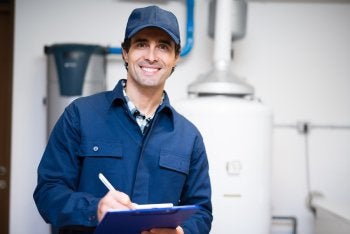Getting through the winter without a water heater in Jacksonville or anywhere else can be a challenge. Your showers will be cold, your dishes and clothes won’t wash the right way, and even washing your hands will be less effective and less comfortable. When you decide it’s time for a new water heater , you’ll want to ask your plumber a few questions regarding the space the unit will take up, its potential efficiency, and the installation process. Here’s what to ask your plumber when you’re choosing a water heater.
How much space do I need?
Whenever you purchase a new appliance, you first must figure out where you’re going to put it. Hot water heaters come in different sizes and configurations, so it helps to have your plumber help you decide. Space is a big concern if you choose a standard hot water heater. Conventional units have large tanks that store the water and continuously heat it, so you’ll need an open area to store the appliance. Tankless water heaters are configured differently, and they are more versatile since they’re so much smaller. Measure your space as well as your water heater options to make sure you have room for the unit you choose.

What’s the most efficient water heater?
Tankless water heaters are far more efficient than conventional water heaters, and one of the main reasons is the tank. Standard hot water heaters will keep a basin of hot water ready for you whether you need it or not. Unfortunately, this allows for standby heat loss, so your heater will have to work around the clock to keep the water hot. Tankless water heaters heat the water up on the spot, only when you need it. This saves you money on your energy bills and reduces your carbon footprint. However, there are still efficient options in the conventional style, so you can choose what works best for your house and budget.
Who should install my water heater?
It’s best to play it safe and have an experienced plumber install your water heater. Things might not go smoothly if you try to install it yourself, which would reduce the efficiency of the appliance and likely require repairs in the future.

